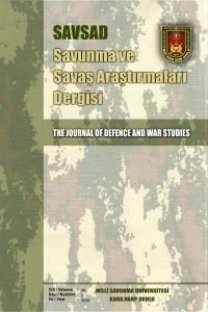İZLENİM YÖNETİMİNDE KENDİLİK ALGISI: BİREYİN ÖZ KENDİLİK DEĞERLENDİRMESİNİN İZLENİM YÖNETİMİ TAKTİKLERİNE ETKİSİ
İzlenim yönetimi bir bireyin kendisine ilişkin algıları kontrol etme çabasıdır. Bireylerin sahip olduğu kişisel özellikler oluşturmaya çalıştıkları izlenimleri etkilemektedir. Kişilik teorilerinden birisi olarak nitelenebilecek olan kendilik kavramı, bireyin kendisini algılama biçimini ifade etmektedir. Bu bağlamda, bu çalışmanın amacı kişinin sahip olduğu öz kendilik değerlendirmesinin, iş hayatında sergilediği izlenim yönetimi taktiklerine etkisini incelemektir. Araştırmanın örneklemi, kamuya ait bir orta öğretim okulunda görev yapan öğretmenlerdir (N=175). Ölçümler İzlenim Yönetimi Ölçeği ve Öz Kendilik Değerlendirmesi Ölçeği kullanılarak yapılmıştır. Elde edilen bulgular, yüksek öz kendilik değerlendirmesine sahip öğretmenlerin olumlu izlenim yönetimi taktikleri; düşük öz kendilik değerlendirmesine sahip öğretmenlerin ise olumsuz izlenim yönetimi taktikleri uyguladıklarını göstermektedir
Anahtar Kelimeler:
İzlenim yönetimi, kendilik algısı, öz kendilik değerlendirmesi
SELF CONCEPT IN IMPRESSION MANAGEMENT: THE EFFECT OF CORE-SELF EVALUATIONS ON IMPRESSION MANAGEMENT TACTICS
Impression management is the effort of ones to control the impressions about him/herself. Individual characteristics affect the impressions of an individual. The self concept, as one of the personality theories, implies the way of one’s perceptions about him/herself. In this frame of the reference, the purpose of the current study is to examine the impact of the core-self evaluations on impression management tactics. The sample consisted of a public high school teachers (N=175). The assessment instruments used were Impression Management Questionnaire and the Core-Self Evaluation Questionnaire. The findings revealed that while the teachers who had high core-self evaluations used positive impression management tactics, the teachers with low core-self-evaluations used negative impression management tactics
Keywords:
Impression management, self concept, core-self evaluation,
- ISSN: 2718-0301
- Yayın Aralığı: Yılda 2 Sayı
- Başlangıç: 2006
- Yayıncı: MİLLİ SAVUNMA ÜNİVERSİTESİ > KARA HARP OKULU > DEKANLIK
